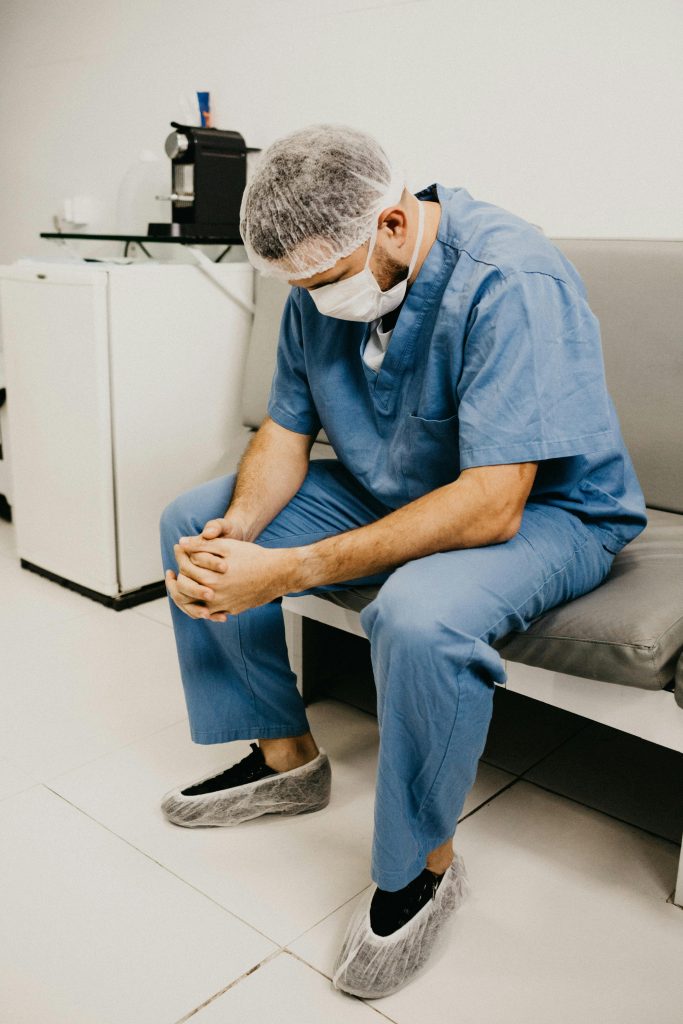 In a recent personal injury case, Latulippe v. West Jefferson Medical Center, the Louisiana Court of Appeal tackled the complexities of assessing damages in a car accident case where the plaintiffs had pre-existing medical conditions. The case arose from a rear-end collision on the Crescent City Connection bridge involving an ambulance. While the defendant admitted fault, the extent of the plaintiffs’ injuries and the appropriate compensation became the central point of contention. The appellate court ultimately affirmed the trial court’s decision, highlighting the importance of proving causation and the impact of injuries on the plaintiffs’ lives, even with pre-existing conditions.
In a recent personal injury case, Latulippe v. West Jefferson Medical Center, the Louisiana Court of Appeal tackled the complexities of assessing damages in a car accident case where the plaintiffs had pre-existing medical conditions. The case arose from a rear-end collision on the Crescent City Connection bridge involving an ambulance. While the defendant admitted fault, the extent of the plaintiffs’ injuries and the appropriate compensation became the central point of contention. The appellate court ultimately affirmed the trial court’s decision, highlighting the importance of proving causation and the impact of injuries on the plaintiffs’ lives, even with pre-existing conditions.
Two brothers, Daniel and Casey Latulippe, were rear-ended by a West Jefferson Medical Center (WJMC) ambulance while stopped in traffic. The ambulance driver admitted fault, stating he didn’t brake to avoid the collision out of concern for the patient and EMT in the back.
Both brothers, along with their wives, sued WJMC for damages. The case went to trial, focusing solely on causation and the extent of the brothers’ injuries.
 Louisiana Personal Injury Lawyer Blog
Louisiana Personal Injury Lawyer Blog


 A recent Louisiana
A recent Louisiana  A recent Louisiana Court of Appeal decision underscores the importance of insurance agents fulfilling their duties with reasonable diligence and care. In
A recent Louisiana Court of Appeal decision underscores the importance of insurance agents fulfilling their duties with reasonable diligence and care. In  In a heart-wrenching case involving the sexual assault of a patient at an outpatient psychiatric treatment facility, the Louisiana Court of Appeal, Third Circuit, recently affirmed a summary judgment that dismissed claims against two individual owners/officers of the facility. The decision, handed down in
In a heart-wrenching case involving the sexual assault of a patient at an outpatient psychiatric treatment facility, the Louisiana Court of Appeal, Third Circuit, recently affirmed a summary judgment that dismissed claims against two individual owners/officers of the facility. The decision, handed down in  In a recent decision, the
In a recent decision, the  In today’s interconnected world, it’s not uncommon for employees to find themselves working across state lines. But what happens when an injury occurs in a different state than where the employment contract was formed? Whose laws apply? Can an injured worker sue their employer, or are they limited to workers’ compensation benefits? These questions were at the heart of the recent case
In today’s interconnected world, it’s not uncommon for employees to find themselves working across state lines. But what happens when an injury occurs in a different state than where the employment contract was formed? Whose laws apply? Can an injured worker sue their employer, or are they limited to workers’ compensation benefits? These questions were at the heart of the recent case  Imagine moving into your new apartment, only to find it’s more like a horror movie set than a cozy home. Mold creeping up the walls, evidence of unwanted rodent roommates… it’s enough to make anyone sick. But does that automatically mean your landlord is liable? A recent court case dives deep into this messy situation, highlighting the legal hurdles tenants face when seeking damages for a less-than-habitable dwelling.
Imagine moving into your new apartment, only to find it’s more like a horror movie set than a cozy home. Mold creeping up the walls, evidence of unwanted rodent roommates… it’s enough to make anyone sick. But does that automatically mean your landlord is liable? A recent court case dives deep into this messy situation, highlighting the legal hurdles tenants face when seeking damages for a less-than-habitable dwelling. Contracting and subcontracting in the construction industry are standard practices. However, they can create several challenges when a worker is injured. What happens, for instance, when the employee of a subcontractor is injured by a device owned and operated by a municipal government unconnected to the construction project at hand? The Louisiana First Circuit Court of Appeal recently addressed this question when a worker was injured by an overhead power line.
Contracting and subcontracting in the construction industry are standard practices. However, they can create several challenges when a worker is injured. What happens, for instance, when the employee of a subcontractor is injured by a device owned and operated by a municipal government unconnected to the construction project at hand? The Louisiana First Circuit Court of Appeal recently addressed this question when a worker was injured by an overhead power line.  Providing sufficient expert testimony can be crucial to prevailing a medical malpractice lawsuit. But what happens when the court determines that the expert testimony offered by a doctor on the plaintiff’s behalf is insufficient because the doctor does not specialize in the same field as the defendant?
Providing sufficient expert testimony can be crucial to prevailing a medical malpractice lawsuit. But what happens when the court determines that the expert testimony offered by a doctor on the plaintiff’s behalf is insufficient because the doctor does not specialize in the same field as the defendant?  Today, in the age of ever-prevalent social media, it is easier than ever to express opinions about events and even other people. It is also easier for people to find one another’s statements, even if the people involved don’t know one another. Statements about emotionally charged events can harm a person’s reputation, social standard, or self-worth. The courts must balance free speech and private citizens’ protection. The Louisiana First Circuit Court of Appeal recently considered such a situation.
Today, in the age of ever-prevalent social media, it is easier than ever to express opinions about events and even other people. It is also easier for people to find one another’s statements, even if the people involved don’t know one another. Statements about emotionally charged events can harm a person’s reputation, social standard, or self-worth. The courts must balance free speech and private citizens’ protection. The Louisiana First Circuit Court of Appeal recently considered such a situation.